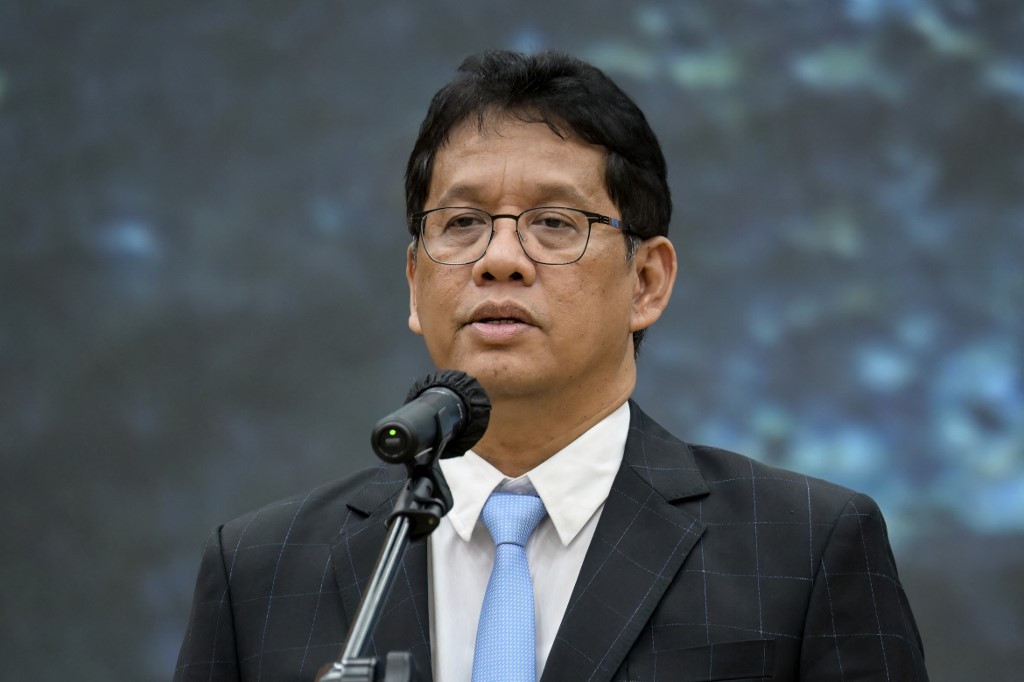Popular Reads
Top Results
Can't find what you're looking for?
View all search resultsPopular Reads
Top Results
Can't find what you're looking for?
View all search resultsThe unfiltered leader: When confidence clashes with convention
Because Purbaya arrived without in-group credentials, his blunt, merit-first style was framed as a status threat.
Change text size
Gift Premium Articles
to Anyone
W
hen new Finance Minister Purbaya Yudhi Sadewa speaks, many call him arrogant. He is blunt, confident and unfiltered. Yet the same traits that upset audiences of Jakarta’s political circles were the same traits that once made him thrive at a global oilfield services company, where he worked as a wireline field engineer.
In that world, confidence was not arrogance, it was professionalism.
I experienced the same thing. When I was recruited into that sector, my recruiter gave me a warning: “Do not focus on the context of how people say things. Focus only on the content.”
The explanation was that engineers there spoke bluntly, while Indonesians were perceived by foreign managers as soft-hearted, more touchy and easily offended. If I paid attention to tone, I would constantly feel slighted. But if I focused on substance, I would survive and succeed.
That training allowed me both to absorb direct criticism without taking offense and to express my own views in the same sharp, straightforward style. And this was not unique to me. 95 percent of my colleagues operated in the same manner.
Yet the reaction to people like Purbaya is not only about personality, it reflects deeper cultural codes. As Edward Hall explained, low-context cultures rely on explicit, direct speech, while high-context cultures embed meaning in tone, gesture and shared understandings. Communication in collectivist settings, as Stella Ting-Toomey showed, often avoids direct confrontation in order to preserve harmony and “face”.
The national value pattern makes the gap even wider. As Hofstede’s global study showed, Indonesia scores only 14 out of 100 on individualism, that is 86 out of 100 on collectivism. Harmony, modesty and indirectness are the cultural script. By contrast, global oilfield firms optimize for individual accountability and efficiency: Speak up, be precise, do not sugar-coat.
Recent research on Indonesia’s collectivism adds an important nuance: It operates in an exclusive way, built on rank loyalty and gatekeeping. In many collectivist societies, collectivism tends to be inclusive, expanding the circle to bring people in.
In Indonesia, it is exclusive, drawing boundaries that mark who is “in” and who is “out”. Outsiders who fight their way in without belonging to the original circle are judged more harshly, and their confidence is quickly read as arrogance.
Nuance matters here. Purbaya was not bred in the economic policy clique, he is an engineer who fought his way in. Because he arrived without in-group credentials, his blunt, merit-first style was framed as a status threat, so criticisms of him became louder and more punitive.
Outsiders who are seen as competent but not “of” the group are often judged as capable but cold, which is easily read as arrogance. And when bonding ties dominate and bridging ties are weak, in-groups defend boundaries more harshly.
In short, the same label “collectivist” hides different mechanics, and outsiders pay the highest price.
Psychology biases the interpretation further. Observers often overattribute to traits and undercredit situations, the so-called “fundamental attribution error”. A blunt sentence is taken as proof of arrogance, not training.
Interaction norms add to the cost. Blunt speech can be a “face-threatening act”. In collectivist settings, one person’s bluntness can feel like humiliation for all. Thus, a style that is harmless in Houston becomes disruptive in Jakarta.
This is where critical thinking should matter the most. A society with stronger habits of reasoning would pause, separate style from substance and judge leaders by content. But that capacity does not appear overnight.
Indonesia’s classrooms still reward memorization over reasoning, leaving students hesitant to explain why. Prolonged economic stress further narrows attention: Under pressure, even capable farmers performed as if their IQ had dropped significantly.
And then the irony. The loudest offense at Purbaya did not come from the farmers struggling with limited means or the underresourced classroom. It came from professors, politicians and commentators, people with titles, income and platforms. They are neither deprived of resources nor schooling.
What is missing is not access to knowledge, but the courage to examine it. Their attack on Purbaya was not an exercise in judgment, it was a performance of conformity. By branding him “arrogant,” they did not engage his ideas, they demonstrated that they stood guard over Indonesia’s script of modesty and harmony.
And that is the sharpest irony: Those with the greatest privilege to think critically are the ones most bound by convention, while those who suffer deprivation are not even the ones raising the loudest complaint. He was “in” but not “of” the club, and in a society defined by exclusive collectivism, that invites the harshest reading.
This irony should not be read as a free pass for blunt leaders. If society is quick to misread confidence as arrogance, leaders too must learn the cost of ignoring context.
Responsibility remains on both sides. Culturally intelligent leaders adapt across contexts. In collectivist cultures, leaders are expected to display humility, preserve harmony and avoid overt assertiveness. Meanwhile, a nation that wants competent, data-driven leadership must learn to separate confidence from arrogance, to focus on substance, not be trapped by tone.
I recalled what my communication professor, Pri Notowidigdo, taught me about Marshall McLuhan’s warning: “The medium is the message”. Context carries meaning.
***
The writer is an alumnus of Indonesia Institute for Management Development (IPMI) and Harvard Business School and the author of Disciplined Storytelling.











